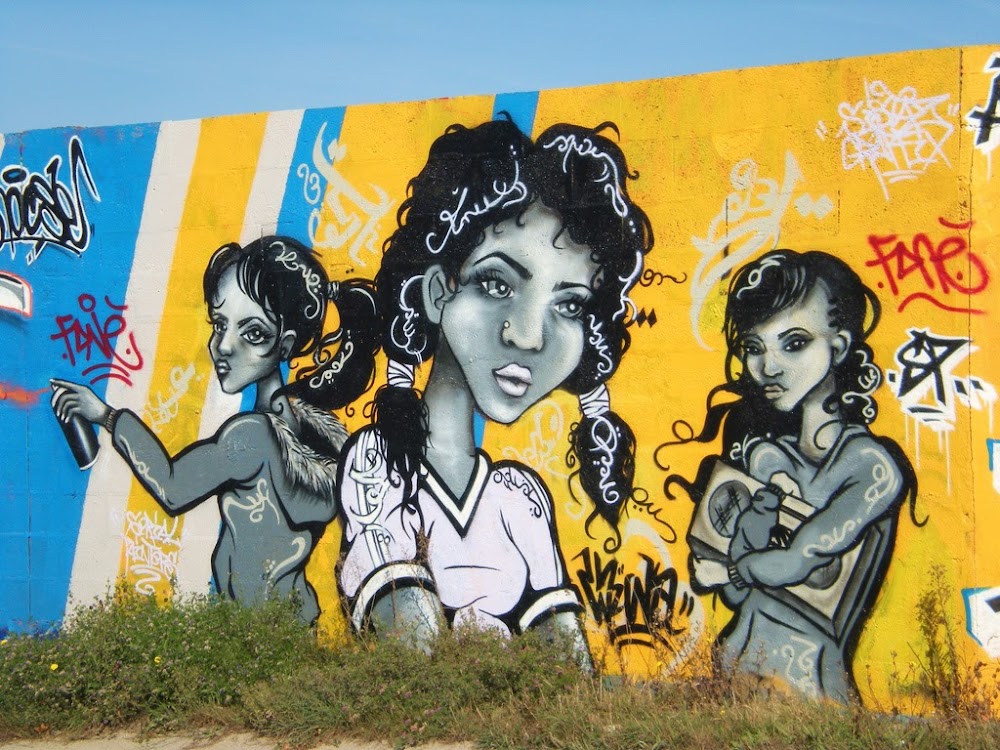Zahia Dehar‘s eruption into the public lives of Franck Ribéry, Karim Benzema and Sidney Govou means she has definitively replaced Rachida Dati, Zinedine Zidane, and even this year’s darling, Malika Ménard, as France’s Kabylian beauty-beast icon, but not without accumulating foes as well as fans. One of these is “beber23”, who on the forum of Pierre Woodman, a Gallic anal deity and self-styled “Superfucker”, suggests in French-Algerian slang that Pierre consider punishing this excremental courtesan for damaging the players’ reputations, and in ways which for educational purposes will be left untranslated:
Man v’la une beurette ke si tu la CK ta du kiffé ca Kom ; di moi ke tu la démoli cte pute de merde ki ruin la reputation d’no joueur; pisse lui dans ca gueule de konass de ma par et celle de mé pote
“Pierre” tactfully replies that while on the famous NRJ 12 clip her rack appears natural and thus desirable, she probably has far too many interesting offers now to need him to convert her into the next Clara Morgane. But we’re not here today to discuss the prospects for online porn vendors in the age of free content.
Beur—beurette is the feminine diminutive–is used to refer to a descendant of North-African immigrants, and “beber23” contribution comes from the world of verlan, a argot particularly associated with France’s Maghrebi ghettos which has moved up and out on the back of leftist and more recently Sarkozyan beur-is-beautiful cultural and political opportunism. Having too much in common with standard French to qualify as a hard-line secret language, it features phonetic transformations of French words and is often larded with North-Africanisms. Wikipedia says that the transformation rules are generally as in this standard account of how arabe became beur, although only item 4 is indispensable (verlan is the inverse of l’envers, ho ho ho):
- Take a word: arabe
- Add or delete a final vowel: arabeuh
- Chop the word up: ara-beuh
- Invert it: beuh-ara
- Truncate or elide the last syllable: beur
Another form also exists, rebeu, which is said to be a transformation of beur, and Maurice Tournier writes in Propos d’étymologie sociale. Tome 2, Des mots en politique that alliteration may play a role in determining which to use (eg “rebeus et renois” vs “blacks, beurs et blancs”).
And, using this other form, the then president of Radio Beur Nacer Kettane, quoted in Immigration and identity in Beur fiction by Alec G Hargreaves says that the transformation is arabe > rebeu > beur instead of arabe > beur > rebeu:
Beur comes from the word ‘arabe’ inverted: arabe gives rebe, which, inverted, gives ber which is written beur.
Whatever the case, I find it bizarre that beur, a word which is mainly applied to people of Berber descent and which is phonetically near-identical to one syllable of the name given to them in Arabic (بَربَر – cf eg the English standard pronunciation, or the pronunciation suggestion, “beurbeur,” in Théodore Roland de Bussy’s 1838L’idiome d’Alger, and the frequent use of “beurbeur” as an online nick by French-Berber youth), is said instead to come from arabe. Hargreaves picks up this point:
A number of commentators [Jean Déjeux, Hédi Bouraoui] have suggested that rather than being a piece of verlan, ‘Beur’ may be a contraction of ‘Berbères d’Europe’… There is, however, no evidence to support this view from within the immigrant community itself. It is true that Kettane, like most of the other founding members of Radio Beur, is of Berber origin, but all agree that the self-designation ‘Beur’ is a verlanesque adaptation of ‘Arabe’.
Interestingly, Kettane also says that
Beur refers both to a geographic and cultural space, the Maghreb, and to a social space, that of the banlieue and the proletariat in France.
Maghreb is Arabic for sunset or where it happens, and hence inter alia for the north coast of Africa, to the west of the Arab heartland. While I think the region was generally described as North Africa pre-decolonisation, and while I think that Kabyle/Amazigh regionalists/nationalists now tend to use that term again to remind us that the aboriginals west and south of Egypt were called by the Arabs precisely to indicate that they were not Arabs (eg OED:Berber), I also believe that it was de rigueur among the class that came to power in Algeria to use “Maghrib”, partly because Arabic was the only sensible alternative to French as the adminstrative language, and partly in order to foster the illusion of pan-Arab unity.
Instead of rambling on, it would be interesting to hear from someone who actually knows something about this, so stuff like:
- Does Kettane’s etymology reflect post-independence Arab nationalist cultural dominance in Algeria?
- What do younger people think?
- Or are the Berbers all Arabised and the Arabs all Berberised to such an extent now that no-one really gives a damn?
Similar posts
Back soon


I think it is more likely that ‘beur’ finds its origin in ‘arabe’ because the North African community in France is rarely referred to as ‘berbères’, but rather as ‘maghrébins’ or ‘arabes’. A reason for this could be that Berbers are not a majority group in Tunisia and Algeria, the country most historically tied to France. Also, it could be that the term ‘Berbère’ (‘barbarus’) did not appeal to Amazigh themselves.
Thanks Youssef. Your last point sounds sensible, but then I struggle to understand why people would use the nick Beurbeur. I figure it has less to do with European analogies like the paradoxical use of “Welsh” (Old High German walh “foreigner” etc) by the Welsh than, given the popularity of hiphop music and style in the banlieues, the reclaiming of “nigger” by American artists. But as I say I know bugger all about this and await inspiration.
[
For those of you for whom this is all, well, Greek, OED sez:
]